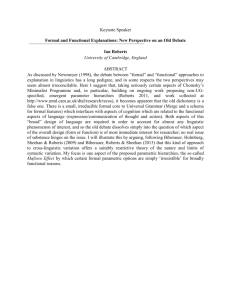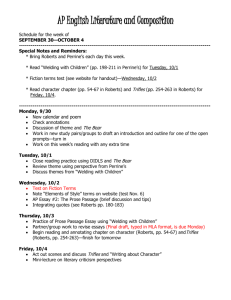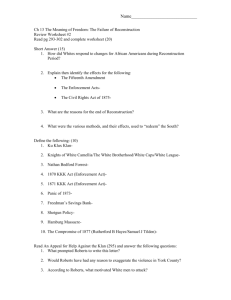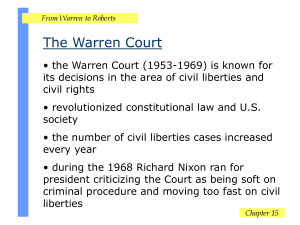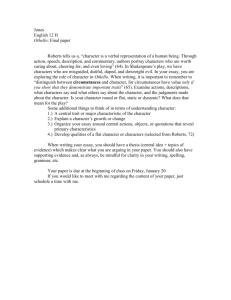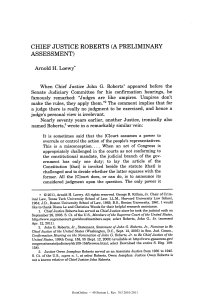Chief Justice Counsels Humility By Robert Barnes
advertisement
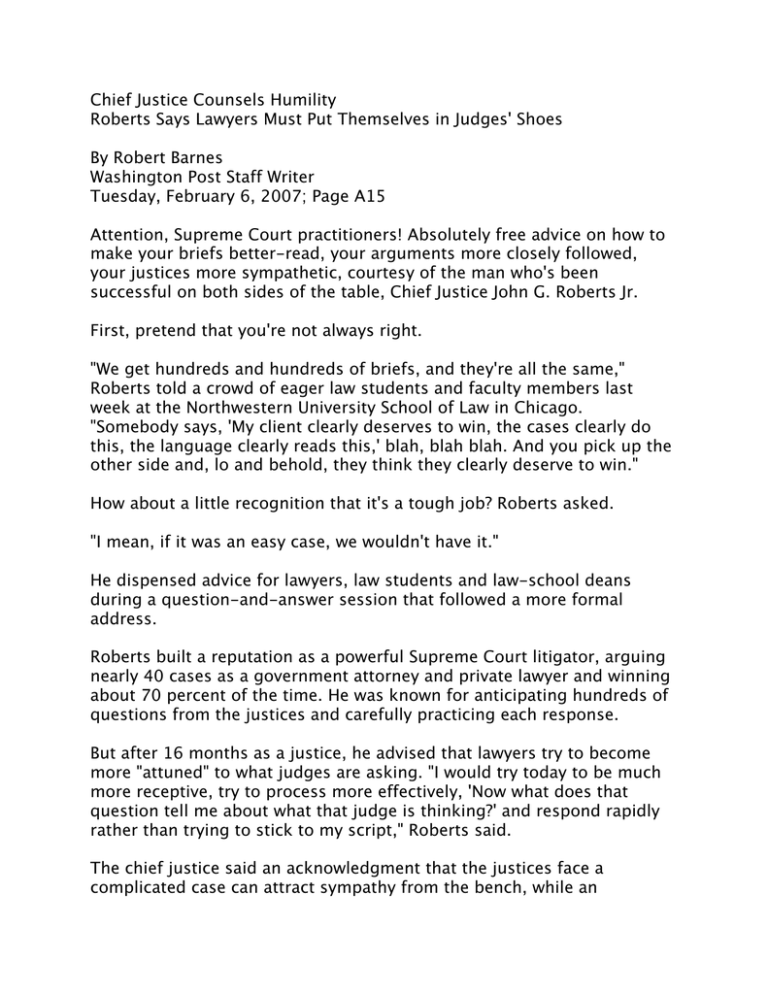
Chief Justice Counsels Humility Roberts Says Lawyers Must Put Themselves in Judges' Shoes By Robert Barnes Washington Post Staff Writer Tuesday, February 6, 2007; Page A15 Attention, Supreme Court practitioners! Absolutely free advice on how to make your briefs better-read, your arguments more closely followed, your justices more sympathetic, courtesy of the man who's been successful on both sides of the table, Chief Justice John G. Roberts Jr. First, pretend that you're not always right. "We get hundreds and hundreds of briefs, and they're all the same," Roberts told a crowd of eager law students and faculty members last week at the Northwestern University School of Law in Chicago. "Somebody says, 'My client clearly deserves to win, the cases clearly do this, the language clearly reads this,' blah, blah blah. And you pick up the other side and, lo and behold, they think they clearly deserve to win." How about a little recognition that it's a tough job? Roberts asked. "I mean, if it was an easy case, we wouldn't have it." He dispensed advice for lawyers, law students and law-school deans during a question-and-answer session that followed a more formal address. Roberts built a reputation as a powerful Supreme Court litigator, arguing nearly 40 cases as a government attorney and private lawyer and winning about 70 percent of the time. He was known for anticipating hundreds of questions from the justices and carefully practicing each response. But after 16 months as a justice, he advised that lawyers try to become more "attuned" to what judges are asking. "I would try today to be much more receptive, try to process more effectively, 'Now what does that question tell me about what that judge is thinking?' and respond rapidly rather than trying to stick to my script," Roberts said. The chief justice said an acknowledgment that the justices face a complicated case can attract sympathy from the bench, while an argument that a case is a no-brainer is a challenge to start looking for holes. And for the truly brave-hearted advocate, Roberts offered this: "You don't see it very often and it can obviously be risky, but for somebody to get up and say, 'The biggest argument against us is' whatever, 'this precedent that you decided six years ago, and if you were going to follow it down the line, my client should probably lose. Here's why I think you shouldn't follow it in this case.' " He added: "I think that type of an approach could be very effective." As for law students, Roberts said he thinks they are more impressive than they were when he graduated from Harvard nearly three decades ago. "People who apply to be clerks [for the justices], for example, it's not just that they did well in law school -- they've got other degrees, they've spent time working in a business, they've written books and cured diseases," he said to laughter. But he's not sure whether law grads are always able to put their knowledge to work. "I don't think they spend a great deal of time with what somebody like a Cicero might refer to as rhetoric, or the idea of taking their understanding of ideas and being able to communicate them in a particular way," Roberts said, adding that the ability to advocate or negotiate is "such a big part of what lawyers do no matter where you go." If he were dean of a law school, Roberts said, looking at Northwestern Dean David E. Van Zandt, he might spend more time on that. And he took one other stand, when a student asked whether judges' terms should be limited, adding: "Some of our professors say that." "Um, you know, I'm not in favor of term limits for judges," Roberts deadpanned.
